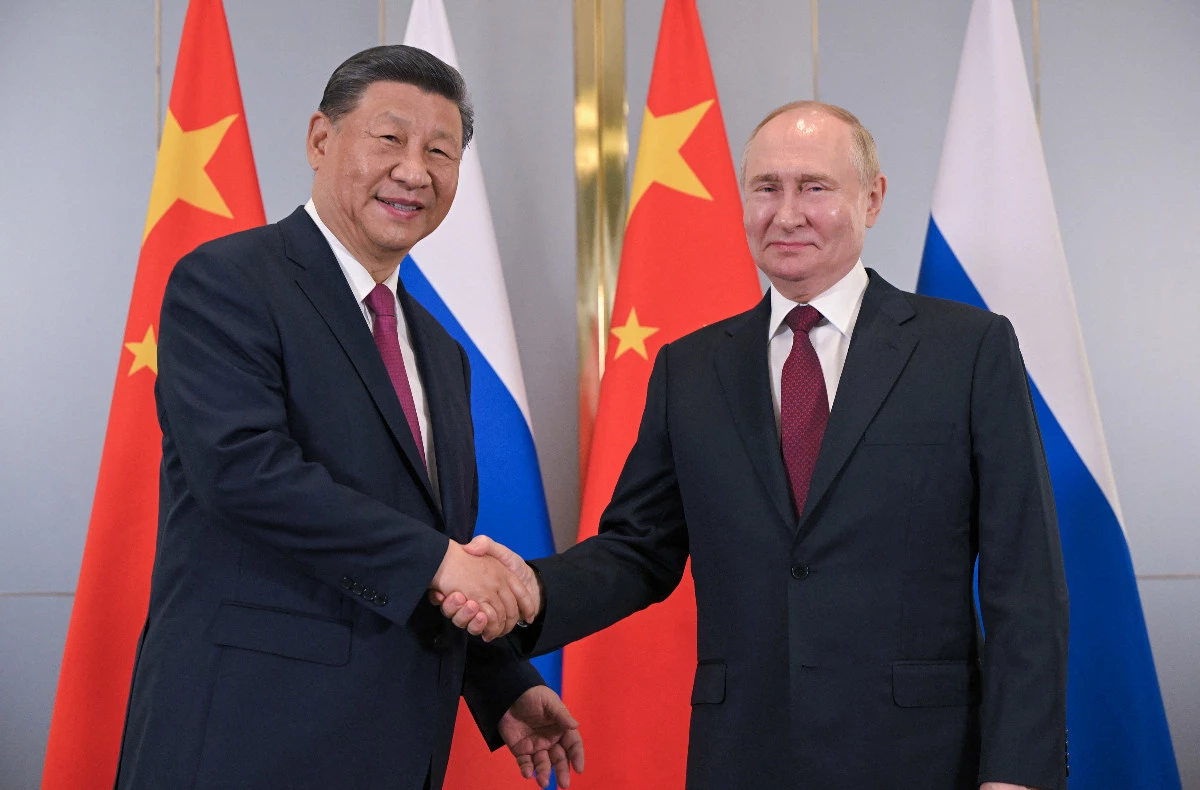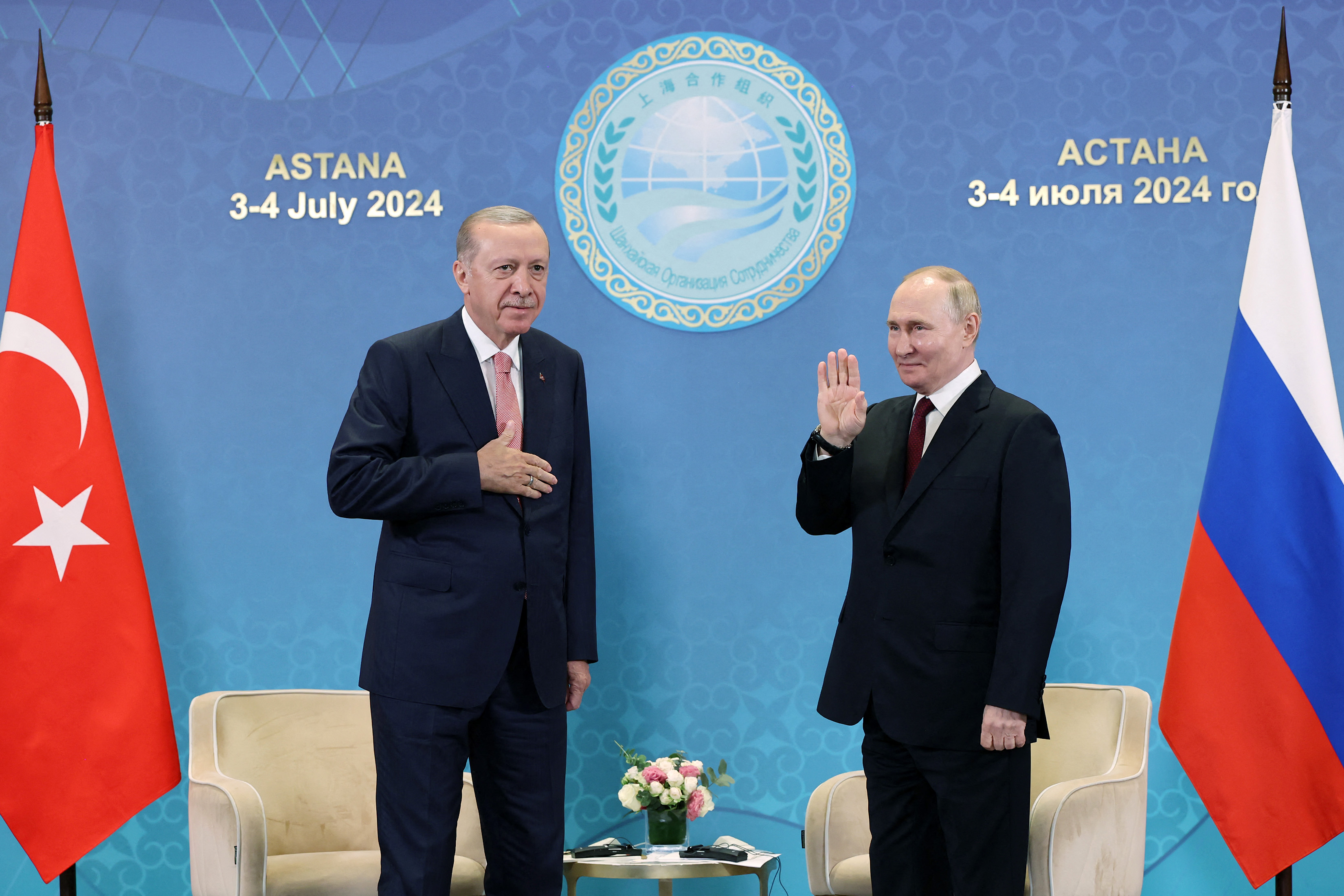
The presidents of Russia and China have expanded the organization to include India, Iran, and Pakistan. "Faced with real risks, we must protect the right to development," Xi said at the meeting in Astana, according to Financial World.
The bloc must deal with "internal differences" peacefully, seek common ground, and resolve cooperation difficulties, Xi added. The Chinese president also emphasized the need to jointly promote scientific and technological innovations and maintain the stability and "smoothness" of industrial and supply chains.
The main meeting was held behind closed doors, but Kremlin spokesperson Dmitry Peskov said earlier today that Putin would discuss his idea of creating a new set of Eurasian collective security treaties.

Second Xi-Putin meeting in less than two months
Xi and Putin met yesterday ahead of the SCO meeting, after which they announced that the countries they lead act in accordance with their own interests and that this is not directed against any other country.
It was the fifth face-to-face meeting between the two men since Russia’s invasion of Ukraine in February 2022 and the second since Putin was re-elected in March.
Xi said the two countries should continuously “nurture the unique value of China-Russia relations and explore the endogenous dynamics of cooperation” in the face of a chaotic international situation and external environment, according to South China Morning Post.
“We must make efforts to safeguard the legitimate rights and interests of the two countries and defend the basic principles of international relations,” Xi told Putin.
Putin hailed the “golden age” of the bilateral ties, an era “being built on the principles of equality, mutual benefit and respect for each other’s sovereignty”, according to Russia’s state TASS news agency.
China supports Kazakhstan in joining BRICS
Xi also met Kazakh President Kassym-Jomart Tokayev, backing Astana’s bid to join Brics, marking a further expansion of the China and Russia-led association that is rivalling the Group of Seven in economic strength.
“China is ready to work closely with Kazakhstan within the framework of the United Nations and other multilateral organisations, to practice genuine multilateralism and to safeguard the common interests of the two countries and of developing countries,” Xi was quoted by state news agency Xinhua as saying.
“China supports Kazakhstan in joining the Brics cooperation mechanism, playing the role of a ‘middle power’ on the international stage and making its due contribution to global governance.”

Erdogan offers mediation in Russian-Ukrainian war
On Wednesday, Putin held talks with Turkish President Recep Tayyip Erdogan, who extended an offer to his Russian counterpart, proposing Turkish assistance in resolving the ongoing Russia-Ukraine conflict. Erdogan expressed confidence in the possibility of achieving a fair and mutually beneficial peace agreement.
However, Dmitry Peskov, spokesman for Putin, promptly dismissed Erdogan's suggestion, asserting that the Turkish leader could not serve as a mediator in the 28-month-old conflict. Peskov's remarks did not elaborate on the Kremlin's reasons for rejecting Erdogan's involvement, MENA FN reported.
In addition to discussing the Russia-Ukraine situation, Erdogan and Putin also addressed the conflict in Gaza and explored potential pathways to resolve the ongoing crisis in Syria.
Growing ambitions
As SCO, established in 2001, gains international visibility and economic weight, its geopolitical ambitions also expand. At this year’s summit, Belarus has been officially accepted as a full member. Tokayev congratulated Belarusian President Alexander Lukashenko, emphasizing that Belarus had swiftly completed all necessary procedures to attain full membership within the SCO.
With this move, Belarus joins the ranks of other SCO member states, including India, Iran, Kazakhstan, China, Kyrgyzstan, Pakistan, Russia, Tajikistan, and Uzbekistan.